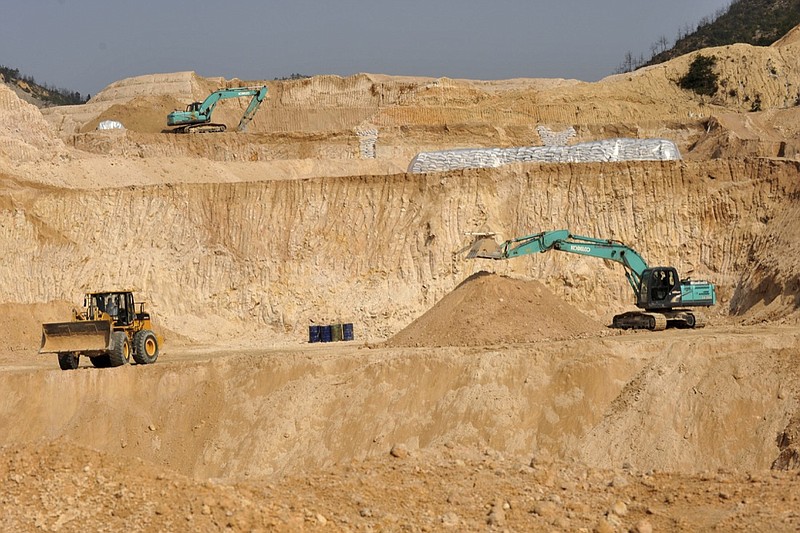For the past two years, the United States has been engaged in an economic version of mutually assured destruction, instigating a trade war with friend and foe alike. So far, the damage has been transmitted primarily through higher prices to households, a decrease in income to American farmers, and a few trillion dollars in stock market value. But as the temperature rises, China is threatening us right where it hurts: our electronics.
In retaliation against U.S. trade barriers, China is contemplating an embargo on so-called "rare earth" minerals. While you may not know much about the rare earth elements, they are essential to production of many of the everyday products we take for granted. And the primary global supplier is China. Get ready to hear much more about them.
There are 17 elements classified as "rare earths." Harking back to high school chemistry, they essentially comprise the next to last row on the periodic table. Although they abound in the earth's crust, they are called rare because they typically do not occur in high concentrations and are therefore costly to extract. Currently, China controls 80 percent of the world's mining and 95 percent of finished production, with Australia a distant second and only one operating mine in the United States (which ships its production to China for processing). Given the pervasive uses in so many products we rely upon, China's dominance and willingness to exploit its position is a serious threat to the U.S. economy.
Despite their relative obscurity, rare earth elements show up everywhere. Got a cellphone? Not without the rare earths; they show up in rechargeable miniature batteries, electronic components and display screens. So also with your laptop, your flat screen television and your DVD player.
If you drive a hybrid vehicle, you are sitting astride several pounds of rare earths in both the battery and the electric motor. If you're still filling up at the pump, these minerals are essential to the refining of gasoline, as well as the operation of your car's catalytic converter.
From ear buds to wind turbines to jet engines, virtually every aspect of life is dependent to some degree on these unique elements. Advanced defense systems, including radar, sonar, drones, satellites and smart weapons, also depend upon a stable supply. A continuation of current trade hostilities may well induce China to roll out its big gun: an embargo on these essential materials.
So far, the Chinese response has been proportional to our own tariffs. The aforementioned farmers in the Midwest have seen the market for soybean exports to China dry up, causing prices to nosedive. But this next round of retaliation takes the war to a new level.
The United States was once the world's largest producer of rare earth metals, but no more. Currently, there is only one operating mine, located in California's San Bernardino county. The mine was restarted in 2018, but sends all of its output to China for final processing. A Texas chemical company has announced plans to open a processing facility, but the impact on American supply will be relatively small and is some time off.
Already, the mere threat of China weaponizing its dominance is imposing economic costs. The spot price of rare earths has risen by over 50 percent in recent months; an actual embargo could be disruptive to many U.S. companies as well as to American consumers, who may face the disturbing prospect that this year's iPhone upgrade may have to wait.
The irrational trade war in inflicting serious pain on both the U.S. and Chinese economies. Backed into a corner, China may deploy the ultimate weapon.
Christopher A. Hopkins, CFA, is a vice president and portfolio manager at Barnett & Co. in Chattanooga.

